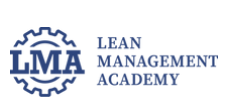Our programs are meticulously customised to meet each organisation's unique needs, irrespective of size. Our unwavering commitment is to deliver superior training solutions, persistently setting the benchmark for excellence in global standards.

Our programs are meticulously customised to meet each organisation's unique needs, irrespective of size. Our unwavering commitment is to deliver superior training solutions, persistently setting the benchmark for excellence in global standards.
Kaizen, derived from japanese culture, embodies the principle of perpetual enhancement. It succinctly advocates for the ethos of "enhancing things continually. "
At the core of lean management academy's ethos, kaizen champions the notion of ceaseless progress. This philosophy is paramount for enduring, cross-generational enterprises, as it nurtures an environment ripe for adaptability, innovation, and long-lasting success.
The history of Lean spans several decades and is rooted in the efforts of various individuals and organisations to improve efficiency, productivity, and quality.
Here's a chronological overview of the key milestones in the development of Lean:
Early Influences (late 19th to early 20th century):
Toyota Production System (TPS) (1940s-1950s):
Spread to the West (1970s-1980s):
Lean Thinking and Application (1990s-Present):
Continued Evolution and Integration:
Throughout its history, Lean management has effectively improved processes, enhanced quality, reduced costs, and fostered a culture of continuous improvement in organisations worldwide. Its principles and practices continue to influence how businesses operate and manage their operations in pursuit of excellence and value creation.
© 2025 coursetakers.com All Rights Reserved. Terms and Conditions of use | Privacy Policy